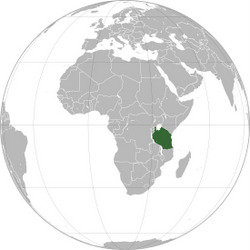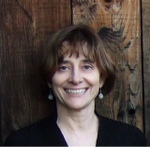
Before this month, Bronwyn Rae, MD, MPH ’13, lecturer in preventive medicine, had never set foot in Africa.
“When I transitioned to a career in public health, I never saw myself as retired or inactive,” said Rae, who continues to teach and mentor medical students after 20 years as a faculty member in anesthesiology. “I spent my first career concentrating very intently on just one person at a time, and now I have the chance to experience a much larger healthcare picture.”
Embarking on a new public/private collaboration to improve medical education and care in East Africa, Rae is part of a 30-person team (15 doctors and 15 nurse educators) representing the Peace Corps and Seed Global Health.
Her one-year mission in Dar es Salaam, Tanzania, will focus on helping local faculty educate and train the next generation of African medical workers.
“The teaching hospital where I will be deployed often has so many patients that they’re lying on mattresses between beds,” she said. “One of the reasons African hospitals are so crowded is that there are not enough doctors to diagnose and treat the patients who sometimes have to wait days for medical attention.”
An Australian native who lived in England, France, and Boston before coming to Chicago, Rae trained in both anesthesia and pediatrics. She’s worked with non-profit organization Baby Hearts in Pakistan, never more than a few feet from armed guards, and with some of the most advanced technology in the world at the Ann & Robert H. Lurie Children’s Hospital of Chicago.
“I’ve always liked to travel so it’s no big surprise that I live 10,000 miles away from where I was born,” Rae said. “When I read the book about Dr. Paul Farmer, Mountains Beyond Mountains, I decided I could be doing more; I realized that there are a lot of opportunities out there that excite me.”
Second Career
Having graduated from Northwestern University Feinberg School of Medicine’s Master of Public Health program in May, Rae spent two weeks in July in Washington, D.C., meeting her colleagues, familiarizing herself with the Peace Corps, hearing from experts in the field, and attending informative lectures.
“We also received training with regards to managing our expectations; what it might be like to land in a country where you don’t know the language or the customs,” said Rae, who visited the White House to watch other volunteers be sworn into the Corps.

One of the first things she did after learning she’d be going to Tanzania was learn Swahili from a native of the land.
“You can’t associate with patients when you don’t speak their language,” Rae said. “When I started at Lurie Children’s I didn’t know Spanish and it really bothered me that I couldn’t speak to some of my patients. I attended night school at Northwestern for three years and in due time no longer needed a translator.”
The Muhimbili National Teaching Hospital where Rae will be working for the next 12 months has only four anesthesiologists in its 1,500 bed facility. A similar hospital in the U.S. would probably have more than 200 because successful surgery and a reduction in maternal mortality require the safe administration of anesthesia.
“You can really look at surgery as an assault on the body with the best possible intentions,” she said. “The difference between an assassin’s knife and a surgeon’s knife is anesthesia.”
Having trained pediatric anesthesia residents and fellows for more than two decades, Rae feels that, in a sense, she’ll be doing the same job she has always done, “just doing it somewhere new.”
In looking for an opportunity to go abroad, Rae felt like the Peace Corp/Seed Global Health experience spoke to her skill set.
“I’ve always had good cultural flexibility,” said Rae, who lives with her husband, Ken Alder, professor of history, in Evanston. The two met in Germany while Rae was on rotation in England. They have been married nearly 25 years.
Limited Resources
With an estimated 20 percent of the global burden of disease treatable by surgery, Rae doesn’t take her role as educator lightly. It’s her belief that in sub-Saharan Africa and elsewhere, one of the limiting factors in treating disease and trauma is a critical shortage of anesthesiologists and pain treatment specialists.
“Our mission is not to find the flaws in their operations, or propose sweeping changes, but to observe and learn how we might help,” she said. “If I were to go to Africa solely as a medical provider there is no doubt I would save lives. However, if I go as a teacher, my effect will be multiplied. The students I teach will go on to save many more lives than I ever could alone and, perhaps, even become teachers themselves.”






